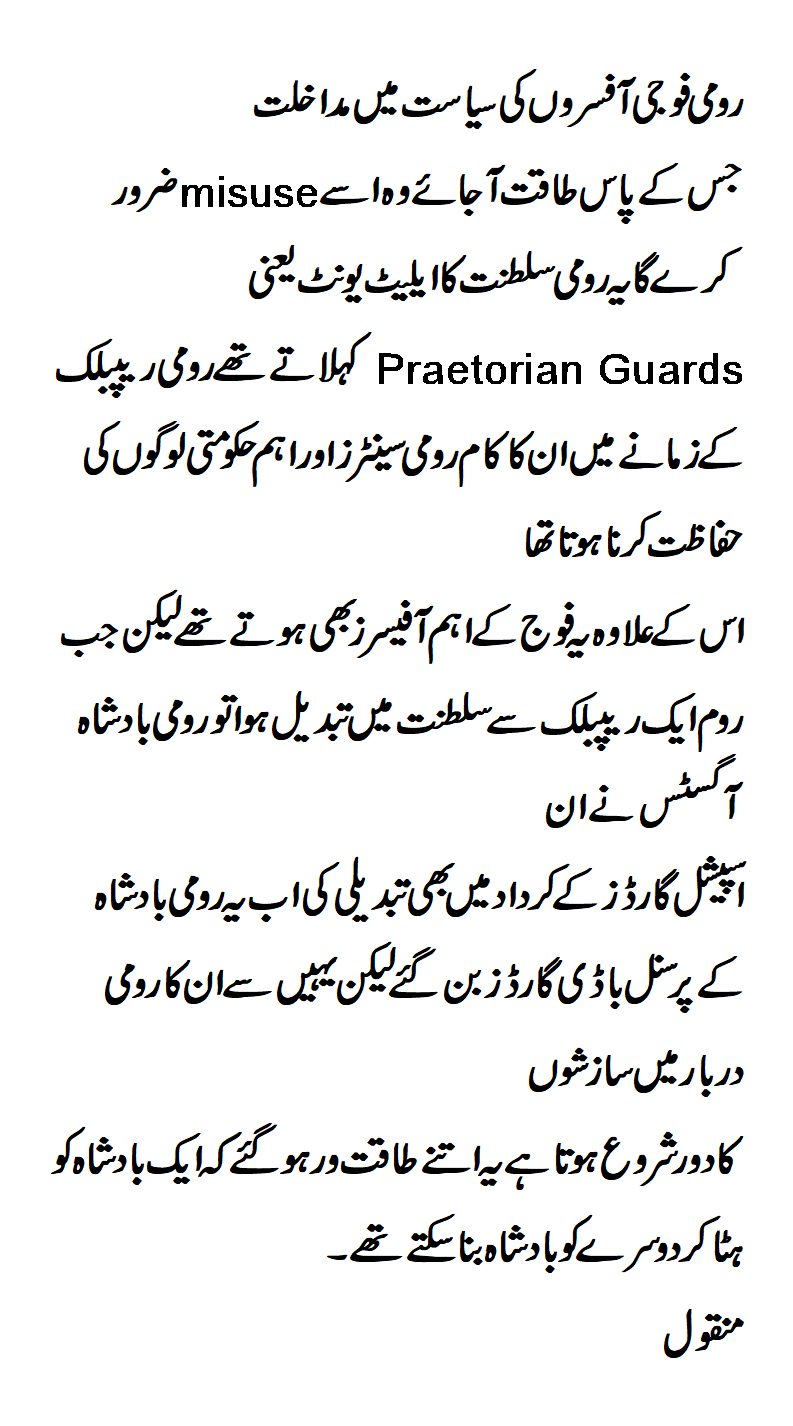One aspect of the troubles that beset Rome in the final century of the Republic was the repeated intervention of the army in politics. This pattern is closely related to the political power exercised by a number of prominent generals: Marius, Sulla, Pompey, and Julius Caesar.
Although liberal democracies operate a division between the military and civilian branches of government, in Rome those who achieved high political office were expected to lead armies. Originally, one of the primary duties of the consuls and
praetors was to command armies, as well as administer justice and order in the city of Rome. As Rome grew larger, it became less practical for the leading magistrates to be away from Rome leading the troops. Instead, from the start of the first century BC, commands tended to be given to former senior magistrates in the years after they had held a consulship or praetorship.
Length of command varied. While the Romans were conducted campaigns in Italy, generals and their legions tended to fight for a single campaign season. Some armies were retained as garrison troops through a winter, but many armies were disbanded.
As campaigns became more distant from Rome and focused on larger enemies, armies could be retained for several years. Generals might be changed at the end of a year or in some cases continued in post for several years in order to complete a campaign. It was from the end of the second century that such extensions became more common.
